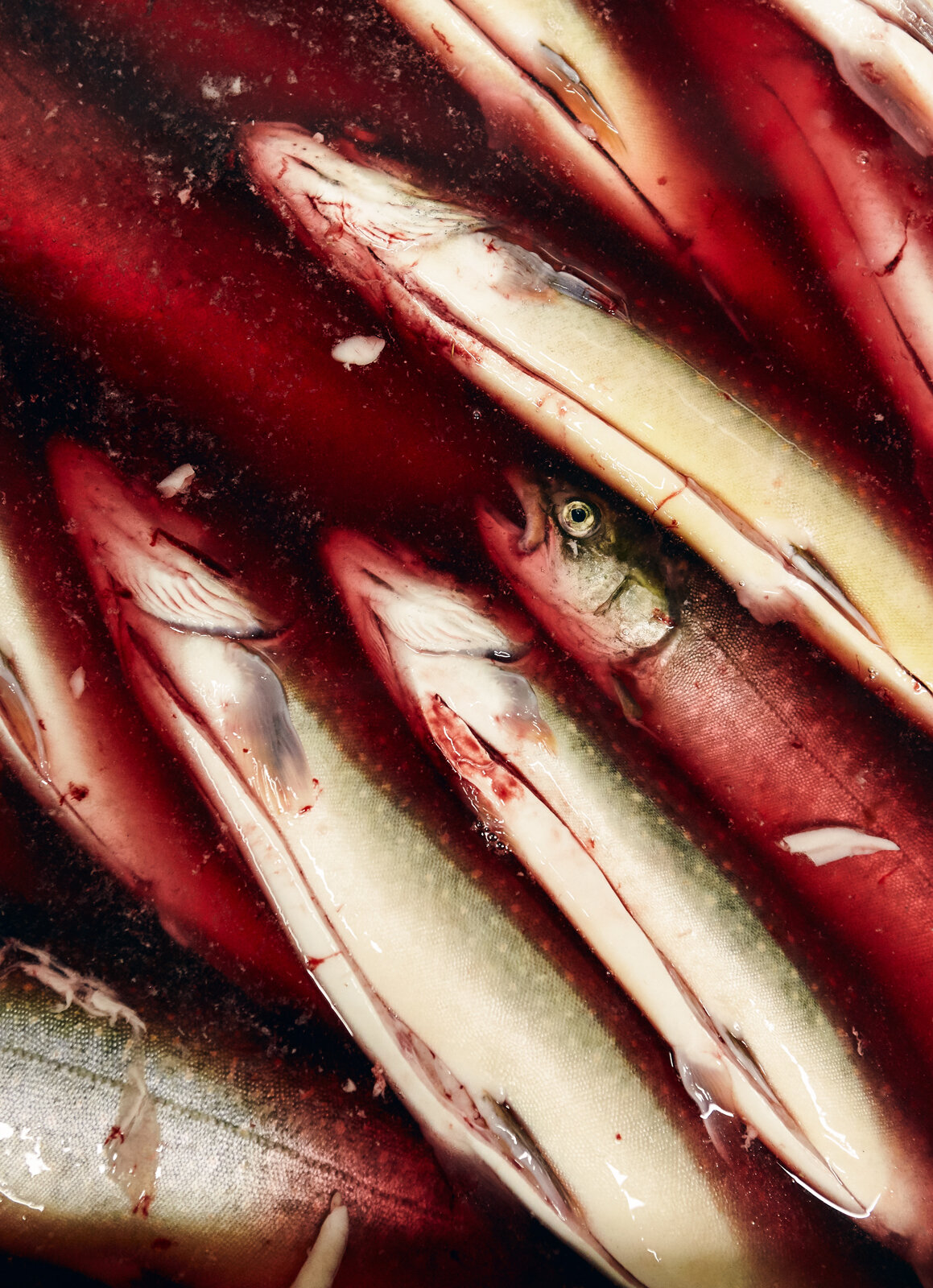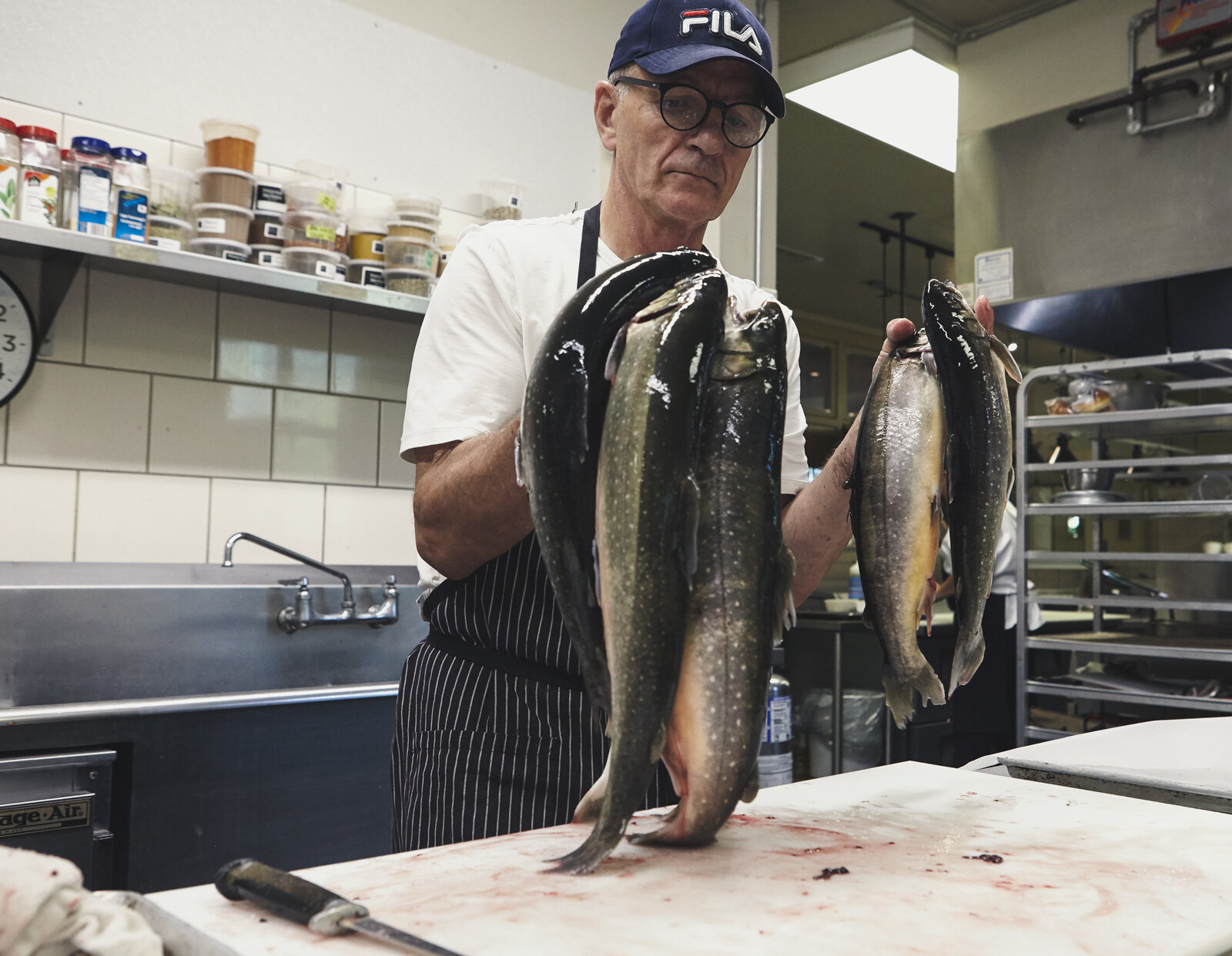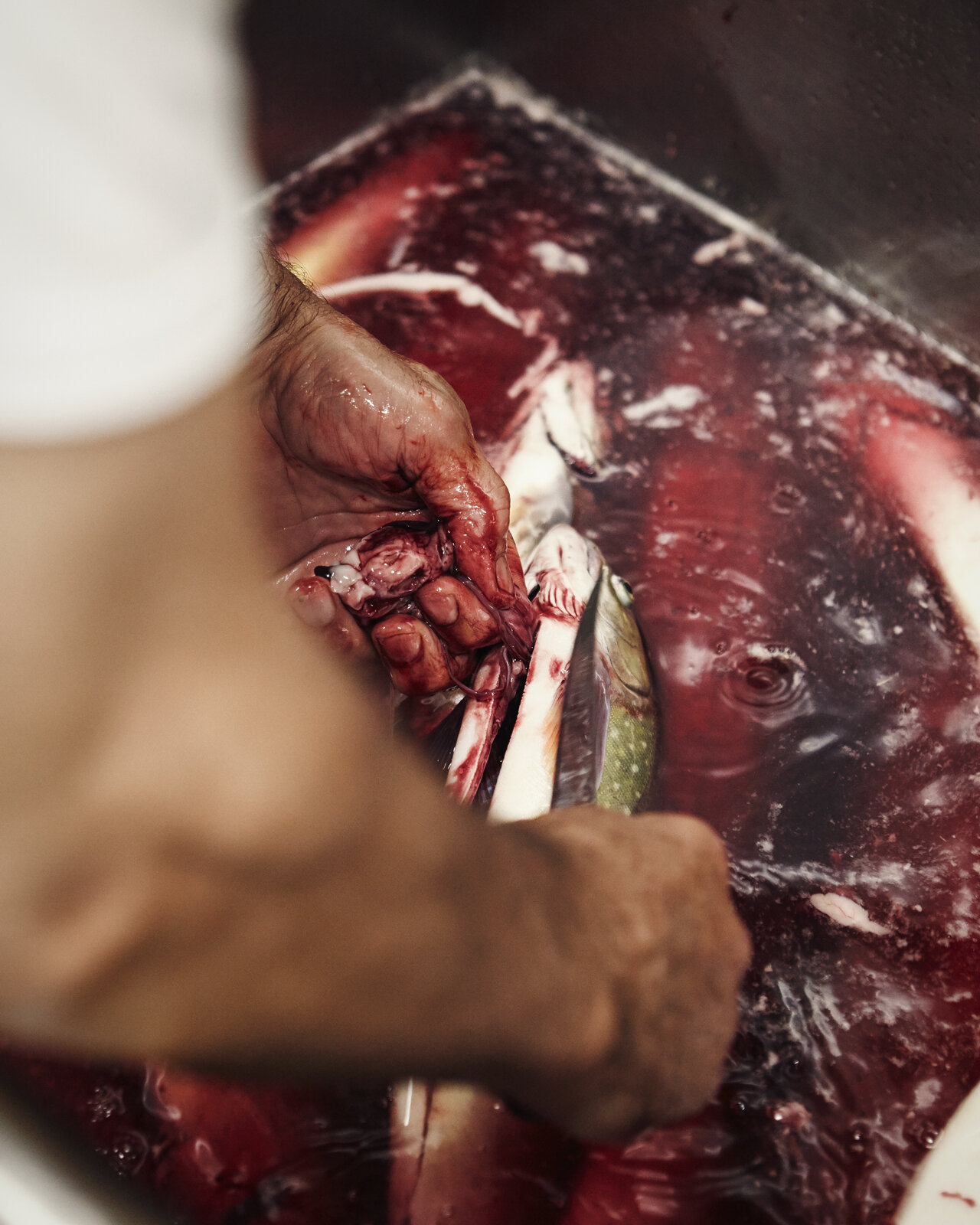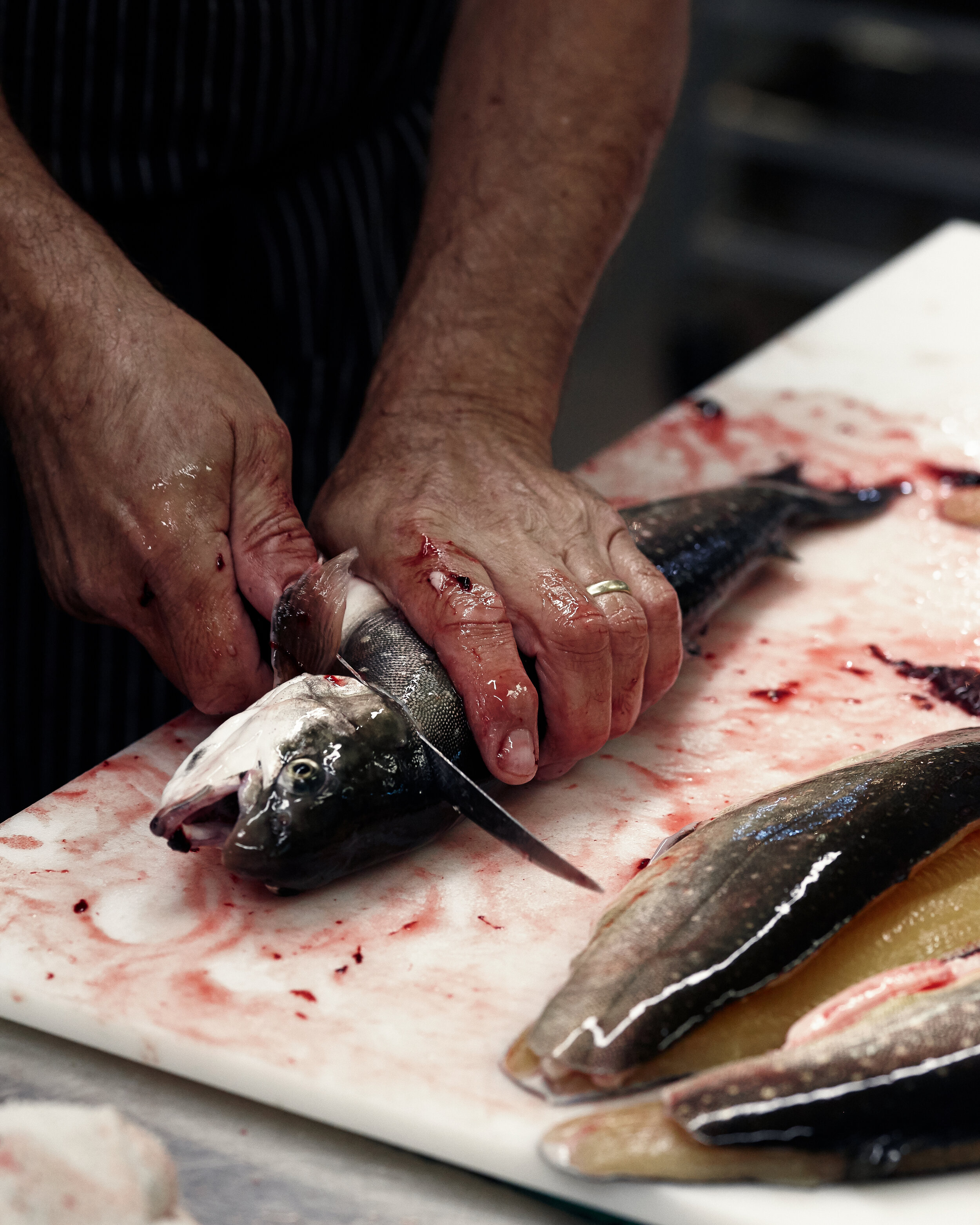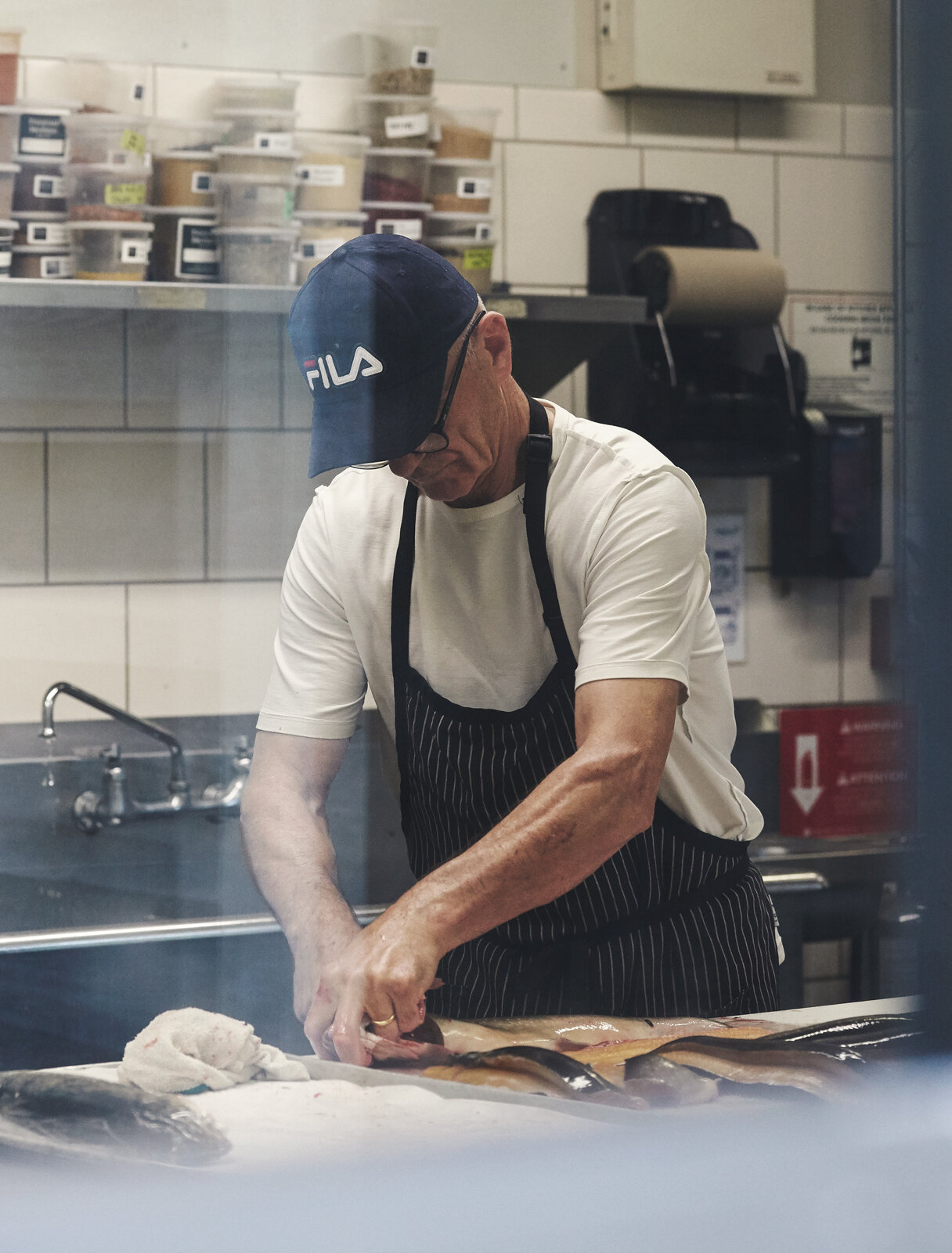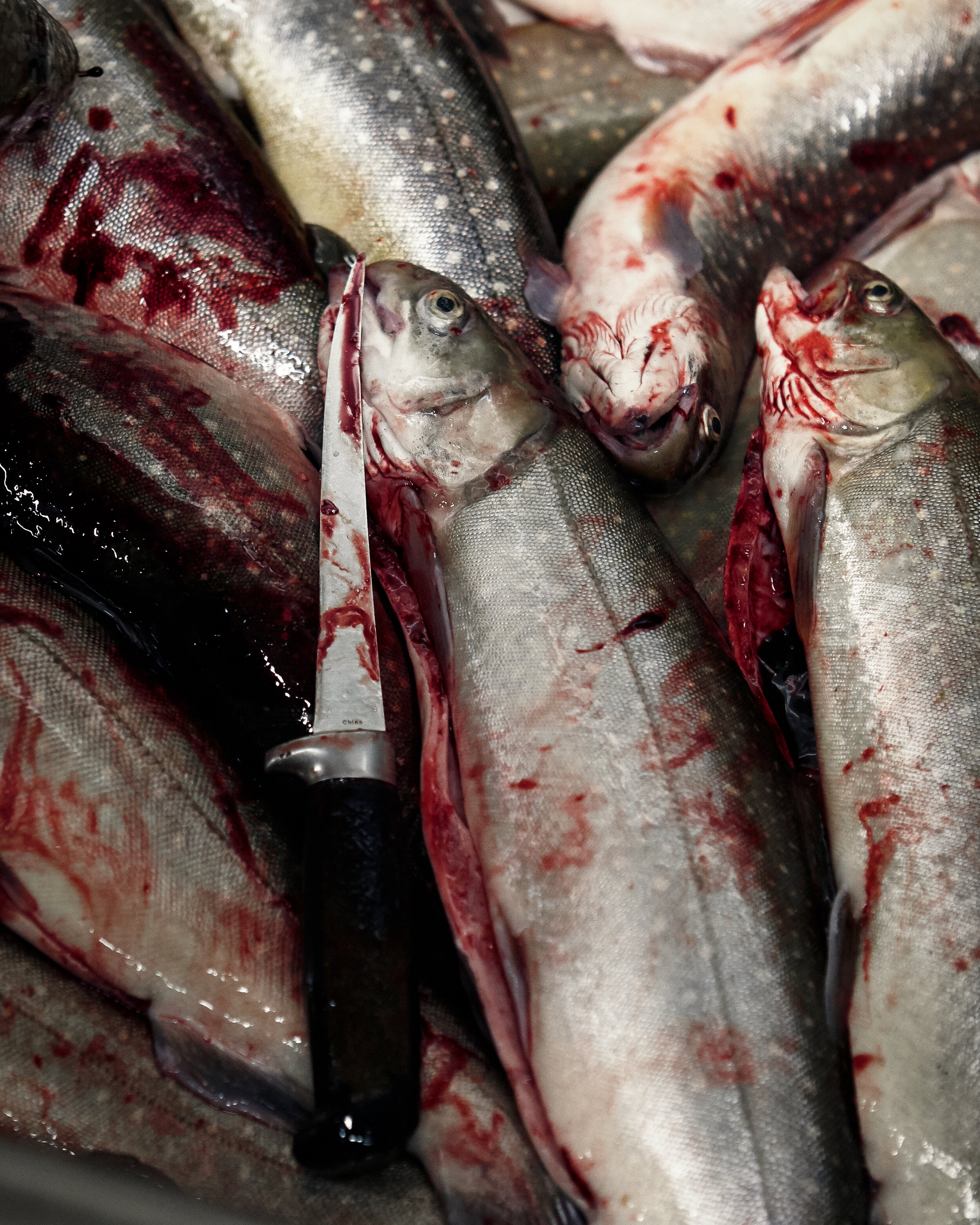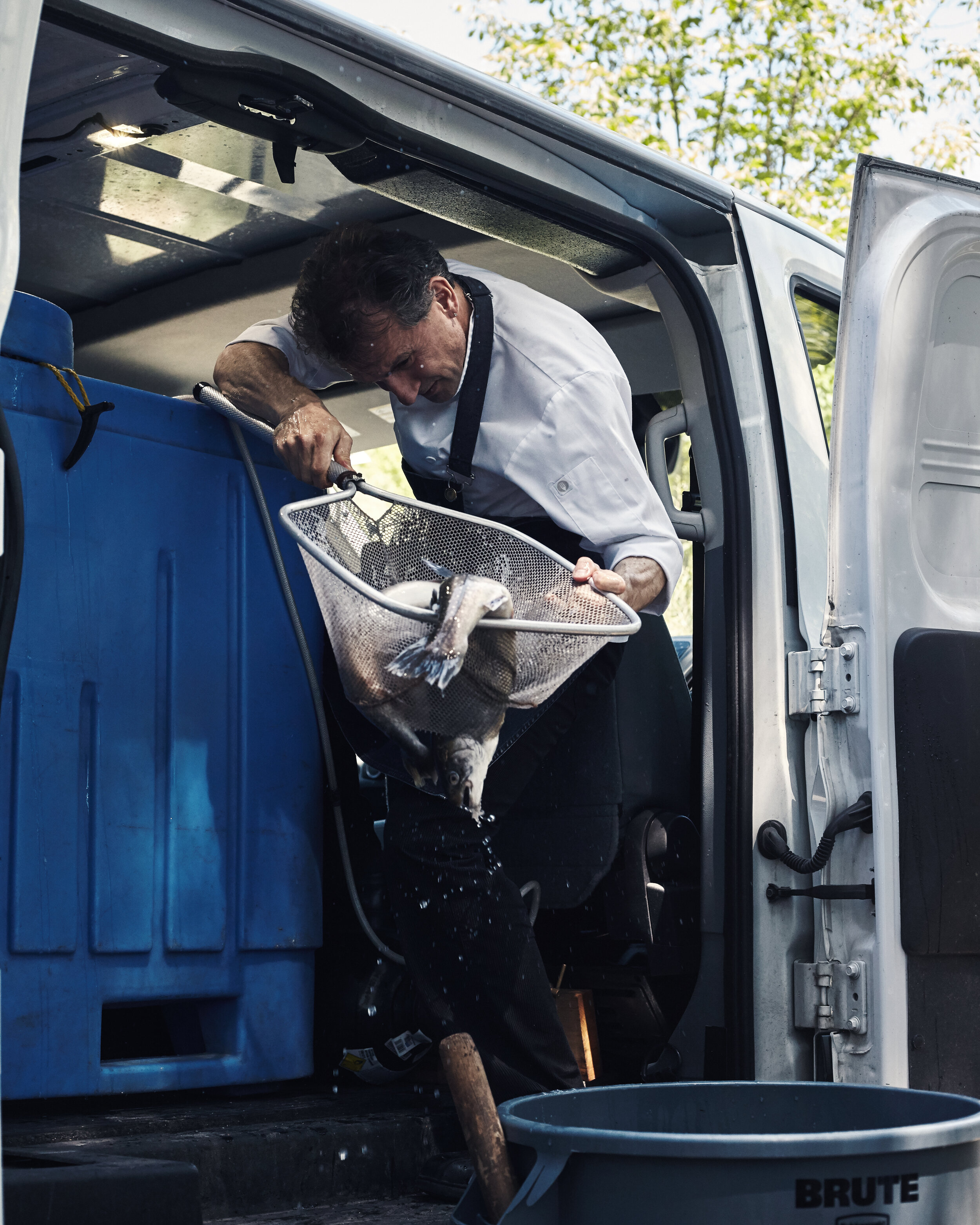Young cooks gathered as Ted pulled up his truck around the back of the kitchen. Inside, a giant bin full of freshwater and live Arctic Char. With attentive looks, they watched on as Ted selected a dozen fish from the lot, flailing in his net as he brought them into the kitchen. Set up next to a sink full of ice, he begins his well choreographed routine. With two swift whacks on the head, he proceeds to gut, rinse and fillet them one by one with great ease and elegance. This oddly gracious performance was mesmerizing to watch, but for some young chefs, the obvious discomfort expressed on their faces stated otherwise. This was the first time they would see an animal killed and butchered before their own eyes. A daunting experience to say the least, but one that, I believe, can help us better understand the need for a coherent and respectful food system.
Taking an animal’s life isn’t an easy task, if it were, the 1995 movie Babe would have had an entirely different plot line. But it cannot be a subject we avoid. It is a part of what connects us to the environment we share and could see us rethink our methods of consumption.
The industrialization of meat and legislations around it, have so far removed us from its process, that some even have difficulty equating the meat they eat with the animals from which it originates. Removing the responsibility of an animal’s death from our hands may seem like a public service at first, but it is detrimental to our assimilation of natural balance.
There is far more respect and awareness in killing a deer out in the woods and making the most out of its bounty, rather than sitting on your couch on a Friday night, elbows deep in a bucket of fried drumsticks. The responsibility of an animal’s life on our conscience is not meant to be settling, but it reminds us to be mindful of the meat we choose. It helps us reflect on the meat we buy, and most importantly on the quantities we consume.
I’ve pondered and discussed the issues around livestock farming and meat consumption for some time now, which has led me to believe that eliminating meat from the human diet is not the solution. But a global reduction of our excessive consumption of it is.
Raising an animal from birth to death may not be feasible to every person in today’s society for a multitude of reasons. But witnessing the ethical euthanization and butchery of animals should be a part of our life education. As the dominant predators, we are meant to maintain the balance of our ecosystem - a lesson I hope most institutions teach. But theory can only teach us so much. Today we still find ourselves too far removed from our relationship with nature. When it comes to food, we need to be brought back into the production process. Only then can we, as a global community, begin to grasp and respect the natural balance that is needed and better reflect on our behaviours as excessive consumers.
